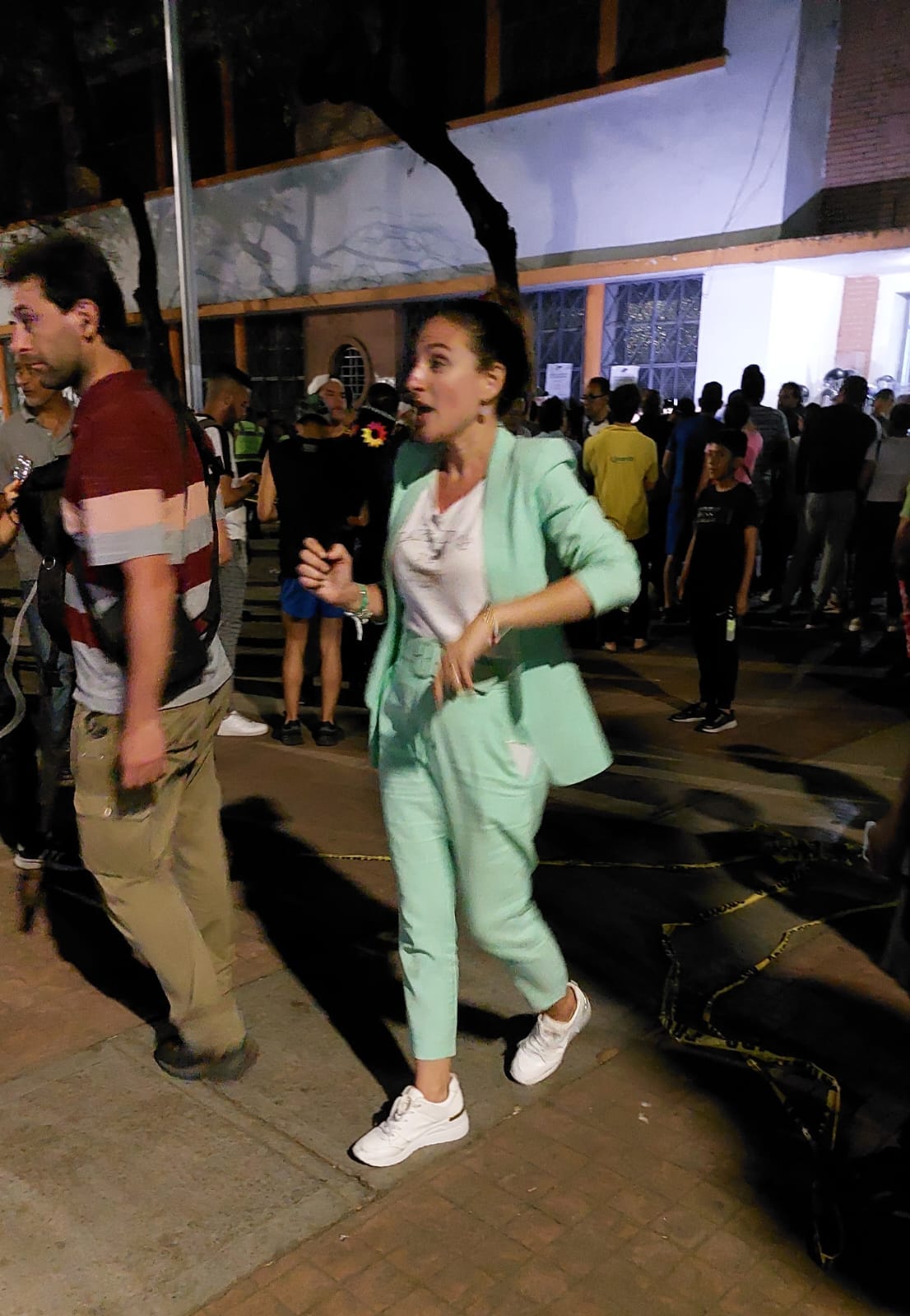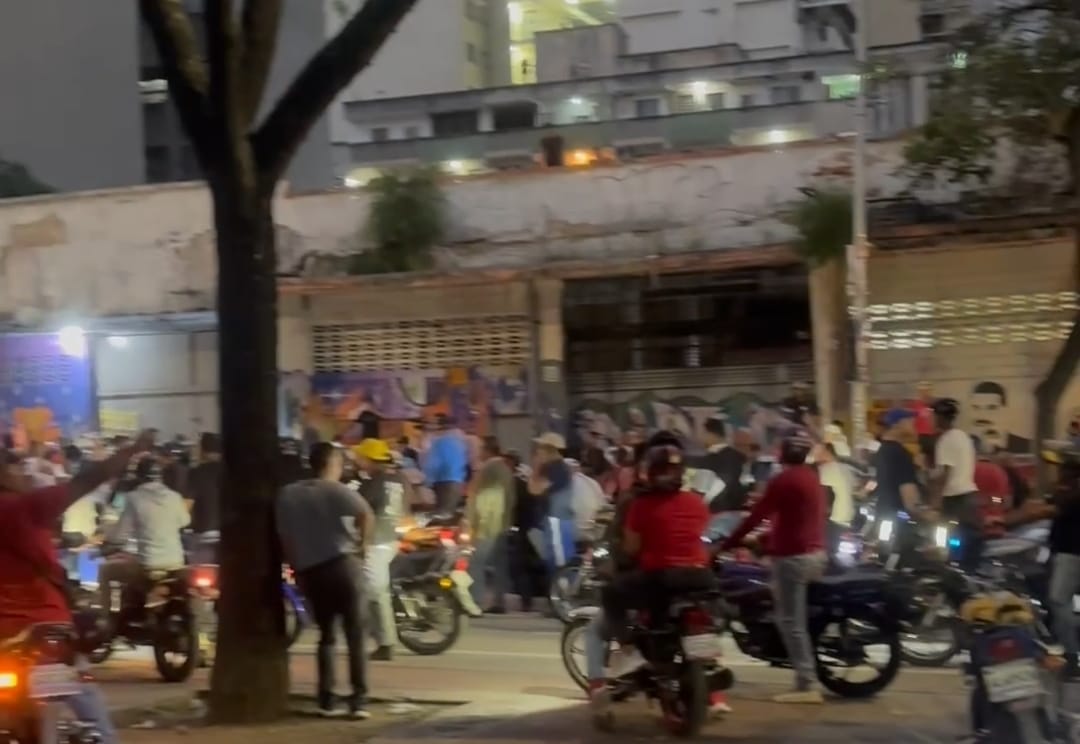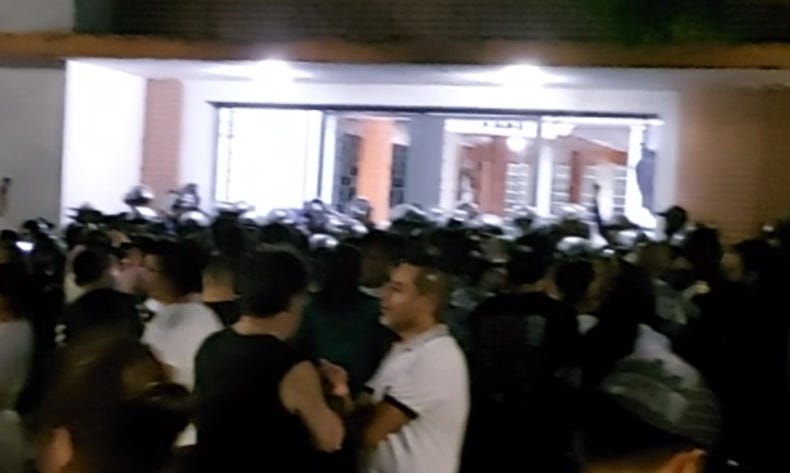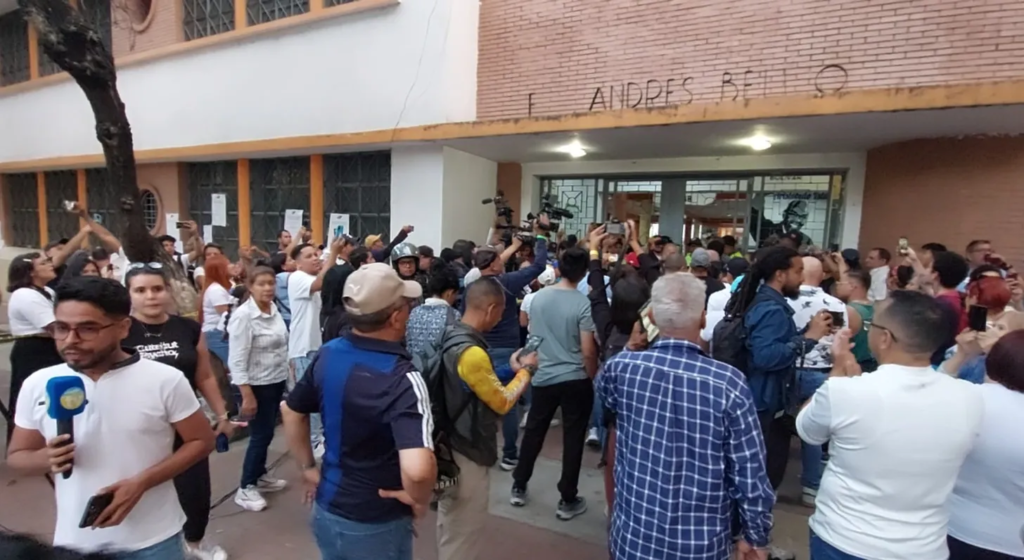By Brian Mier, De-Linking Brazil
I covered Venezuela’s 3-week presidential campaign season, the elections, and their fallout for TeleSur English, the multilateral public TV news network funded by the governments of Bolivia, Cuba, Nicaragua, and Venezuela. I am an experienced analyst on Brazilian politics, but I do not claim to be a specialist on Venezuela. The following is not analysis but a description of events I witnessed on election night. I invite readers to use it to help with their own assessments of the political situation.
I worked during Venezuela’s presidential election on Sunday, July 28, from 4:45 AM to 2 AM Monday morning, with two cameramen, a producer, and a Spanish-language reporter. Together we spent the day doing live reports from inside and outside four polling stations around the city, finishing our day behind Miraflores Palace for the announcement of the election results.
De-Linking Brazil is a reader-supported publication. To receive new posts and support my work, consider becoming a free or paid subscriber.
We spent the afternoon inside the Andre Bello polling center in a primarily middle-class voting district in downtown Caracas, doing live hits at 2:30, 3:30, and 4:30, moving out to the front of the building shortly before the polls closed. It was the same place where we reported on the opening of the polls at 6 AM. At that moment, the single-file line in front of the polling station stretched around the block. All morning long, the polling stations we visited were full, leading other journalists I spoke to make wild predictions about voter turnout, some saying they expected over 70%. After lunch, however, the crowds began to thin out. From around 2:30 until the doors closed, Andre Bello, which was one of the largest polling stations in the city, had more volunteers gossiping than voters in its hallways.
By 2:30 PM, the huge lines of voters at Andre Bello polling station had thinned to a trickle
We left the building at 5:50 to position ourselves to cover the closing of the polls. The government had ordered all polling stations to close their doors at 6, but Andre Bello stayed open for another 10 minutes or so to let a few stragglers in to vote – 4 or 5 people tops, including an elderly couple who had problems walking.
When they finally closed the doors, a crowd of around 40 TV crew members and social media videomakers had gathered, with around 30 citizens who stood in front of the doorway and cheered as the doors shut, and a group of around 5 police officers guarding the doors.
Shortly after 6 PM, the doors closed at Andre Bello polling center
Minutes later, a crowd of around 100 people rushed up to the door and started yelling, “Let us vote! Let us vote!” Suddenly, there were live streamers everywhere. An Argentinian coworker pointed out a crew from Argentina’s Javier Milei-aligned Channel 13 that was streaming everything as a dour, conservatively dressed reporter asked crying women and angry-looking men why Nicolas Maduro wouldn’t let them vote.
For TeleSur Portuguese: “As you can see, there are nearly as many journalists here as their are protesters, in this mini-turmoil, trying to delegitimize the election.”

Journalist from Argentina’s far-right Channel 13, on a live feed, rushing around asking citizens, “why didn’t Nicolas Maduro let you vote?”
Half an hour later, a group of hundreds of men rode up on loud motorcycles, some of which seemed to have had their engines adjusted to provide constant backfires, with some riders in black hoods and masks. They blocked off the road in front of the polling station and sat there, revving their engines as the crowd yelled things like, “¡Viva Venezuela!” As I prepared to record a report, a muscular white man in the crowd glared at me, said, “Nicolas Maduro,” and made a throat-slitting gesture.
Suddenly, a group of motorcyclist rode up onto the sidewalk to the entrance, everyone else got off their bikes and left them blocking the road. Together, they marched into the crowd and rushed for the door, pushing at the police.

Screen shot of Machado supporters on their motorcycles moving up the sidewalk towards Andre Bello polling station
At this point, I moved about 50 yards back to avoid being trampled. From there, I saw a lot of pushing and heard a lot of screaming. Two male police officers ran by me carrying a female police officer who was bleeding from the head. They loaded her up on a motorcycle and rode down the sidewalk past me toward a hospital. I saw no injuries in the crowd of Maria Corina Machado supporters.
Two Bolivaran National Police Force officers rush and injured police woman towards the hospital
A few minutes later, a group of motorcycles from the national police force rode up, two to a bike, with the passengers holding assault rifles, and most of the motorcyclists vacated the premises. The 5 police officers guarding the doors were replaced with a group of 20 female riot control police with plexiglass shields and helmets. Suddenly, the YouTube and Twitter streams of angry white men yelling at the police looked less heroic. It was a clever tactical move.

The crowd calms down after reinforcements arrive to guard the door of Andre Bello polling center
As the crowd dwindled, more security arrived. A small group of Maria Corina Machado supporters lingered on, yelling, “We want the results! We want the results!” with far-right social media filmmakers cutting in close on their smartphones to make it look like they were in the middle of a big crowd.
Later that night, when I met up with other journalists covering the election behind Miraflores Palace, I heard similar stories from other polling stations. One journalist told me where she was located, the crowd started yelling, “Shut the doors! Shut the doors!” at 6. As soon as the doors shut, they started yelling, “Let us vote! Let us vote!”
Maria Corina Machado, Edmundo Gonzalez, and the PUD announced weeks before the election that they were not going to respect the democratic rule of law and would tally their own election results. What I witnessed in front of Andre Bello polling station on Sunday night appears to have been a form of theater – one of many tactics used to produce and disseminate videos to delegitimize the election, that was standardized at many polling centers across Caracas.

